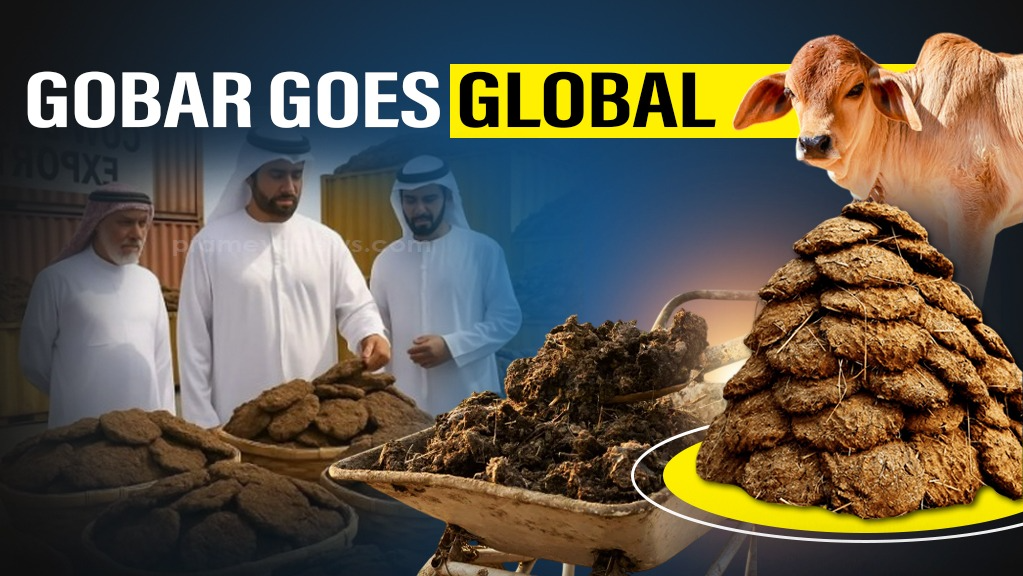

New Delhi, May 1: In a remarkable twist to traditional agriculture, India’s cow dung exports have soared to Rs 400 Cr in the financial year 2023–24, positioning the humble by-product as a high-value commodity in the global market. Gulf nations, including Kuwait, Saudi Arabia, and the United Arab Emirates, have emerged as leading importers, recognising cow dung's growing significance in sustainable farming practices.
The surge in demand is largely driven by its proven benefits in date palm cultivation—a staple crop in arid Gulf regions. Kuwait alone has placed substantial bulk orders, such as 192 metric tons, as farmers report notable improvements in the size, yield, and health of date palms fertilised with Indian cow dung powder.
Priced between Rs 30 and Rs 50 per kilogram, cow dung has become an unlikely export hero. Its appeal lies in its organic composition, making it an ideal input for eco-conscious farming. Experts anticipate continued growth in exports as the global agricultural community shifts towards natural alternatives to chemical fertilisers.
With an estimated 30 million tonnes of cow dung produced daily, India is well-positioned to meet this rising international demand. What was once viewed as a rural waste product has now transformed into a powerful tool for sustainable agriculture, supporting both environmental goals and economic growth.
This export boom has also opened new avenues for rural entrepreneurship, with cow dung-based products from organic fertilisers to biogas, gaining traction both domestically and internationally.
The trend underscores India’s emerging role as a global leader in organic inputs and sustainable agricultural solutions.
As the world increasingly embraces eco-friendly farming, India's cow dung export success story highlights the vast potential of natural resources when harnessed with innovation and purpose.